Nonfiction: Giving Thanks, or Much, Much Too Weak
Monday, November 30, 2009
“May I take your picture?” Whitehead asked us from across the table at Thanksgiving dinner. He was a burly, balding man with a delicate pink button up and a pair of cleanly pressed chinos. Alison and I had sat down near the head, close to where the thin linen tablecloth barley met the mahogany edge. We sat there without much intention of talking to anyone, but as we soon discovered it was difficult avoiding all human interaction.
Alison invited me to spend a few days with her in Rochester Minnesota. So, when given the choice between staying at school and freeloading during the holiday, I chose the latter.
Rochester is the kind of town everyone knows about but has never been to. Situated an hour and a half by car south of Minneapolis, it’s the third largest city in Minnesota outside of the Minneapolis-St. Paul-Bloomington metropolitan area. Perhaps most famously known as the home of the grandiose Mayo Clinic, downtown boasts a relatively impressive array of bars and restaurants while the surrounding residential neighborhoods are mostly quaint, upscale, and sprawling. It’s technically not a suburb, but anyone who has been there (and seen the boxy houses rolling on the hillsides) knows that it sure does look like one.
Alison did not hear Whitehead the first time around; she had been starring off at an old dog in the kitchen, wrapping her hair around her pinky finger, tilting her head to the side with a look of pained ennui on her face. I thought I heard a tiny gasp ejected from her lips when she turned back towards her dinner and saw Whitehead towering above us with a camera awkwardly poised at his face.
We leaned in, smiled, and the shutter clicked.
Whitehead is not part of Alison’s family, and as far as I know that was the first time the two had ever met. There were a lot of people Alison didn’t know at Thanksgiving, for the event wasn’t held at her house, or even a house of her relatives’, but Alison made a tradition of going to the neighbor’s every year, The Ulbricht’s.
The Ulbricht’s were a moderately wealthy couple, both doctors. Mr. Ulbricht was a foppy gentleman in a maroon sweater vest who made sure that everyone’s flute was never empty. Missus Ulbricht wore a knitted sweater underneath a red Christmas apron. They were, I imagine, a perfect sample of an aging Rochester couple—cute, happy, safe, and constantly throwing cocktail parties.
When asked why Alison went to Thanksgiving at the Ulbricht’s she always replied, “the oyster stuffing.”
Whitehead sat back down in his seat and grinned. He asked for our names. Alsion said hers first. When I said my name aloud he raised his eyebrows telling me that he probably would not be able to remember it, which I took to mean it was slightly too foreign. Later on he gave me an index card and told me to write it down.
When I asked Whitehead why he wanted to take our picture he explained, at length, that it was for a journalism project he was working on for his school, a prestigious east coast Ivy. Whitehead looked about ten years too old to be going to school, so I assumed he was doing graduate work. He told us that the project’s goal was to document different peoples’ experiences on Thanksgiving and that we were just the thing he was looking for. “You’re perfect,” he said. “You’re interesting.”
I’m not sure what Whitehead meant by “interesting,” and I was too shy to ask. After all, it was not my place to get offended, particularly when the hosts had been so kind in giving me champagne and appetizers of aged ham, provolone cheese, and access to a mound of crab dip the size of a premature baby. However, a quick look around the room could suggest a possible definition behind that loaded word.
Alison doesn’t dress like a normal twenty-one year old. She’s short and petite. Her hair is dyed dark brown, almost black. Her tortoise shell, square framed glasses sit on her peculiarly cute nose like a twig balancing on someone’s finger. She keeps a green scarf many sizes too big for her nuzzled around her neck. Her black pencil skirt tugs at her hips and presses up nicely against her pert buttocks. Her tiny legs, wrapped in grey stockings meant for an elderly woman, jut out from under the skirt as the limbs of a butterfly do from under its wings.
Alison was quite obviously the prettiest young-adult at Thanksgiving. Much prettier than the red head that recently completed the triathlon—she looked intimidating, and her wool slacks looked uncomfortable (it would not surprise me if they were either, for her face was constantly scrunched up like wad of paper). There was the broad shouldered Marine who constantly had a look of utter confusion on his face. There was the chubby seventeen year old swimmer who had hair that had been flat ironed so many times it looked as though it was going to fall apart at any moment.
So, what Whitehead may have meant by “interesting” was in fact an admission of Alison’s fascinating beauty. She’s naturally seductive, the kind of girl that could go days without showering and still look desirable. Besides, in a room full of crusty socialites it’s easy to see how Alison could be characterized as “interesting.” She’s a liberal arts college student. She’s in to photography and art. She loves Brazil. She has a wonderfully dry sense of cynicism. Of course, she’s “interesting.”
Oh yes, and then there’s me. I’m interesting because I’m not white. It’s the stock line I’ve had to repeat through the years: “Mymotherisfromamericabutmyfatherisfromnepal.” No matter how I spin it, or where I say it, the reaction tends to be generally the same. I haven’t the slightest clue how I wish people would react to me, and I certainly don’t expect something from them, mainly because I don’t know what it is exactly I want. But I can’t help this debilitating feeling of bitterness from rising up in me , boiling, ready to spit like a tea kettle. It never does. I don’t think it ever will.
I got up from the table to help myself to pie and coffee. The dog was still in the kitchen. I sat down next to him, sipping away. He looked like he didn’t want to be pet. This dog was so old, drooling, too tired to move. This dog looked like he wanted to be left alone. But I pet him anyway. I sipped my coffee again and grimaced. It was much, much too weak.
Post Party Poem
Sunday, November 22, 2009
Last night we toasted to sorrow
and threw back the vodka
one shot at a time,
nourishing the soul.
Today, my body told me
that it would love to give my soul
a piece of its mind.
Mortality Report: The POW Virus

THE FLEA.
by John Donne
MARK but this flea, and mark in this,
How little that which thou deniest me is ;
It suck'd me first, and now sucks thee,
And in this flea our two bloods mingled be.
Thou know'st that this cannot be said
A sin, nor shame, nor loss of maidenhead ;
Yet this enjoys before it woo,
And pamper'd swells with one blood made of two ;
And this, alas ! is more than we would do.
O stay, three lives in one flea spare,
Where we almost, yea, more than married are.
This flea is you and I, and this
Our marriage bed, and marriage temple is.
Though parents grudge, and you, we're met,
And cloister'd in these living walls of jet.
Though use make you apt to kill me,
Let not to that self-murder added be,
And sacrilege, three sins in killing three.
Cruel and sudden, hast thou since
Purpled thy nail in blood of innocence?
Wherein could this flea guilty be,
Except in that drop which it suck'd from thee?
Yet thou triumph'st, and say'st that thou
Find'st not thyself nor me the weaker now.
'Tis true ; then learn how false fears be ;
Just so much honour, when thou yield'st to me,
Will waste, as this flea's death took life from thee
The patient had lived a sedentary life in his Maine home for over 25 years, leaving only occasionally. Medical examiners scoured the property, looking for any clue as to the man’s peculiar condition. Seeing overgrown bushes, leaf piles, stacks of old lumber and scrap metal the examiners decided to trap several mammals near the patient’s property. Collections from the mammals and surrounding foliage yielded 31 and nine mammals. Of the nine animals collected, four were infected with the POW virus, a disease carried on ticks, yet doctors were not able to isolate the virus from any of the 31 ticks.
This was among one of the first documented cases of POW virus infection in the United States. It is probable that there are more POW infections that we can count, and the only way to tell is by proxy, through testing for the West Nile Virus. The POW virus has a morbidity rate of 10-15%. No therapy exists.
***
Stumbling out from a party, I saw Cooper fall into the grass behind the apartment complex on the corner of Portland and Saratoga. He pressed his hands into the grass and hoisted his torso higher. His legs flailed and sputtered like a fish’s might if a fish had legs and if a fish were dying. A cold resolution came over him and he just sat up, Apple Sauce style, and pulled a cigarette out of his pocket. He sat there for ten minutes, smoking and looking up at the starless sky. The slivered moon hung loosely on the horizon, like a giant toenail that had been clipped and jettisoned into the air. Cooper looked up at it and laughed quietly, a puff of smoke curling towards it.
I heard him burp. I heard him groan. And in the moment before he leaned back over the grass to vomit I wondered if it was cold enough for the ticks to be out. Had he been out a moment longer I would have walked him home, but I didn't know the way and wiping the vomit from his lips he sprang up and ran towards the median.
TRACK MANGOES RADIO: The American Man at Age Ten
Sunday, November 15, 2009
"My barn having burned to the ground, I can now see the moon”
An in progress series using long exposures and low light at night to capture dilapidated barns and agricultural buildings across the Midwest. More to come.



2C-I Dreams
Friday, November 6, 2009
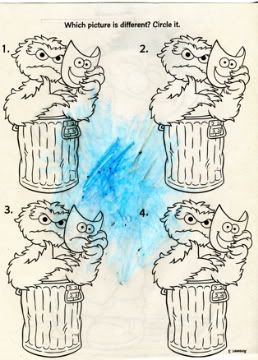
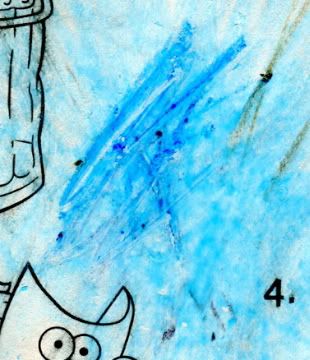
Oscar doses.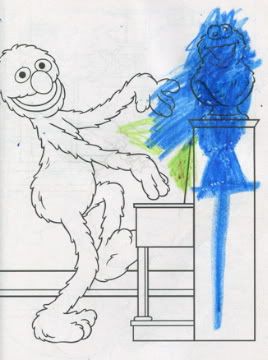
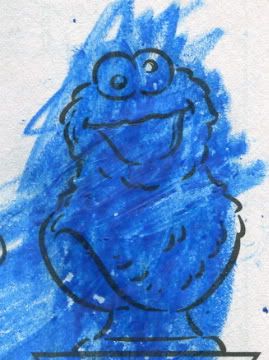
Oscar watches Grover play the piano. Oscar doesn't understand why the bust of Cookie Monster looks so terrible.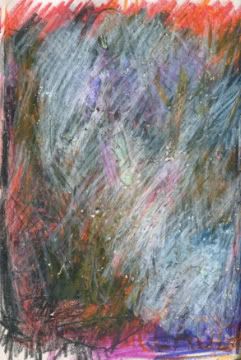
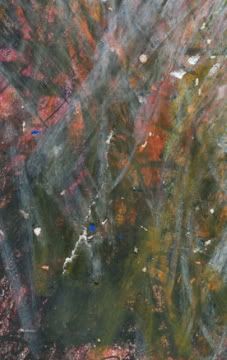
Strange things begin to happen.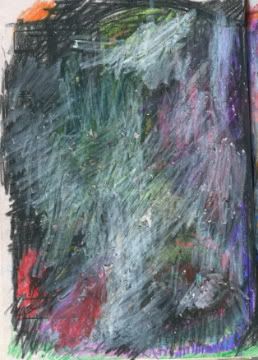

Strange things keep happening and cease to stop.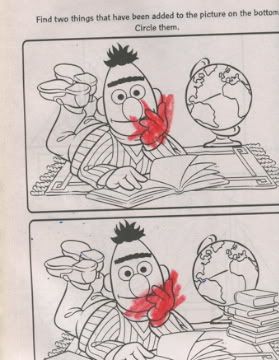
Oscar turns around and notices that Bert has been watching him.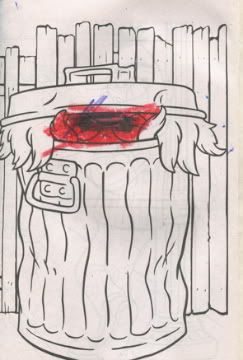
The come down.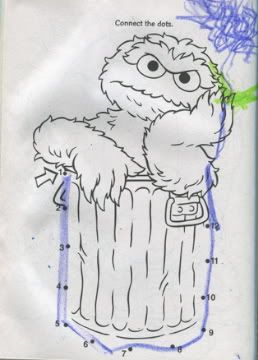
The morning after.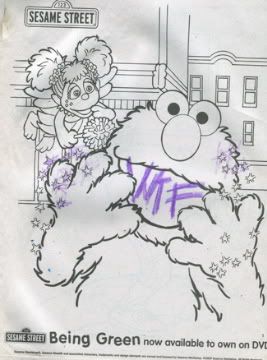
Oscar goes back to school and finds that Elmo is seeing things too. And the story goes on.
Fiction: The Mysterious Death of Lucas Bartholomew Cooper
Sunday, November 1, 2009

It was in the early morning of a crisp autumn day that Miss Abbey Sinclair stopped to stretch her aching calves near the East Bank of the Mississippi and saw Lucas Bartholomew Cooper’s body, floating face down in the water, lapping up against some driftwood. She saw the body through her chubby legs as she bent over to strike a yoga pose. Shrieking, she immediately trotted back to her house to call the authorities.
The body looked very fresh when the forensic unit fished it out of the water. The boy might have been alive, for his skin was supple and still the color of an olive. An autopsy confirmed that he died by poison, though they would not say what kind.
Clio Mendelssohn had never known Cooper to be the suicidal type. So it came as a surprise to her when she found the obituary heralding his death. Seeing his face in print, she vaguely recalled the one or two classes they had had together during their four years of college. Once, at a party, she tried to seduce him, only to find out in a drunken display that he was a homosexual.
She didn’t plan on conducting a private investigation into his death, but something in her wanted to know what that poison was. It was on the day she read the obituary that she found herself standing at the front door of the house on Corsair Boulevard, rented out by one of Cooper’s ex-boyfriends, an acidic fop named Patrick Little. Patrick lived there with his boyfriend, Mason, whom everyone knew to be a manipulative sociopath. By talking to Cooper’s current boyfriend, Hitch Hickey, a painfully awkward graduate student studying math, she learned that Cooper had been at the house on Corsair Boulevard the night before his death.
Standing on the porch, facing the front door, Clio rang the doorbell. Patrick Little appeared in jamb and leaned against it. He was a tall, skinny boy with dark, floppy hair that hung down in front of his face like ivy vines hanging off a stone arch. He told Clio that he saw Cooper that night, saw him two timing with Mason. When she asked what he meant, Patrick told her to ask the culprit himself. He was upstairs sleeping.
So Clio mounted the stairs to the bedroom and found herself in a dimly lit hallway, lined with filthy carpets and old photographs hung in crooked frames. The door to Mason’s room was slightly ajar. She could hear him coughing, hacking up pieces of his lungs, and groaning, as if he was recovering from some incurable illness. She knocked quietly and Mason beckoned her inside.
Mason sat up rigidly on the mattress in his empty room with a lit cigarette dangling between his fingers. Clio stood in the doorway and asked him what he and Cooper had talked about that night. Mason told her that they had talked the night away, chain smoking on the porch. “He kept telling me about his petering romance with some nerd from the U,” Mason told Clio. “I said, I told him, I said that no man would come ‘round to his ex’s house looking for a quick one. No man would mess with somethin’ so stable. But I told him he wasn’t no man anyway. I told him he was a scared little boy looking for damaged goods ‘cause he thought they were fun. Scared college boy come ‘round here to the workin’ class homes, lookin’ for a fucked up soul. Rich bitch found was he was lookin’ for didn’t he? He told me he felt awful, and I said, fine, what are you gon’ do about it? You gon’ kill yerself? I told him that’d be the day.”
“And then he did,” Clio said sternly. A moment of silence passed between them and Mason took a long drag of cigarette.
“That he did,” he continued. “I told him he could find syringes in the bathroom, dirty ones, and that under the sink was a bottle of Drano. Straight to the neck, I said, was most effective. No man throws himself off a bridge, you know? If a man wants death in ‘em. If he wants it hard. And I saw it in him. I saw it and I don’t feel sorry I did.”
Clio left the house unsure of whether or not to contact the police. She walked down to the river and sat on the log where they had found the body. The sun was setting over the Lake Street bridge and she peered up at it. She pondered with alarming composure the scene of Cooper and Mason on the front porch.
Before she left the house on Corsair Boulevard she asked Mason why he did it.
“Why’d I say what I said?!” Mason laughed. “I didn’t say what I said because I wanted to kill no one. I didn’t say what I said because I knew Coop to be a fragile thing. I didn’t say what I said to piss off Patrick or Hitch or nobody.”
“So why’d you do it?” she asked then.
Mason grinned and chuckled. “Because he listened.”


